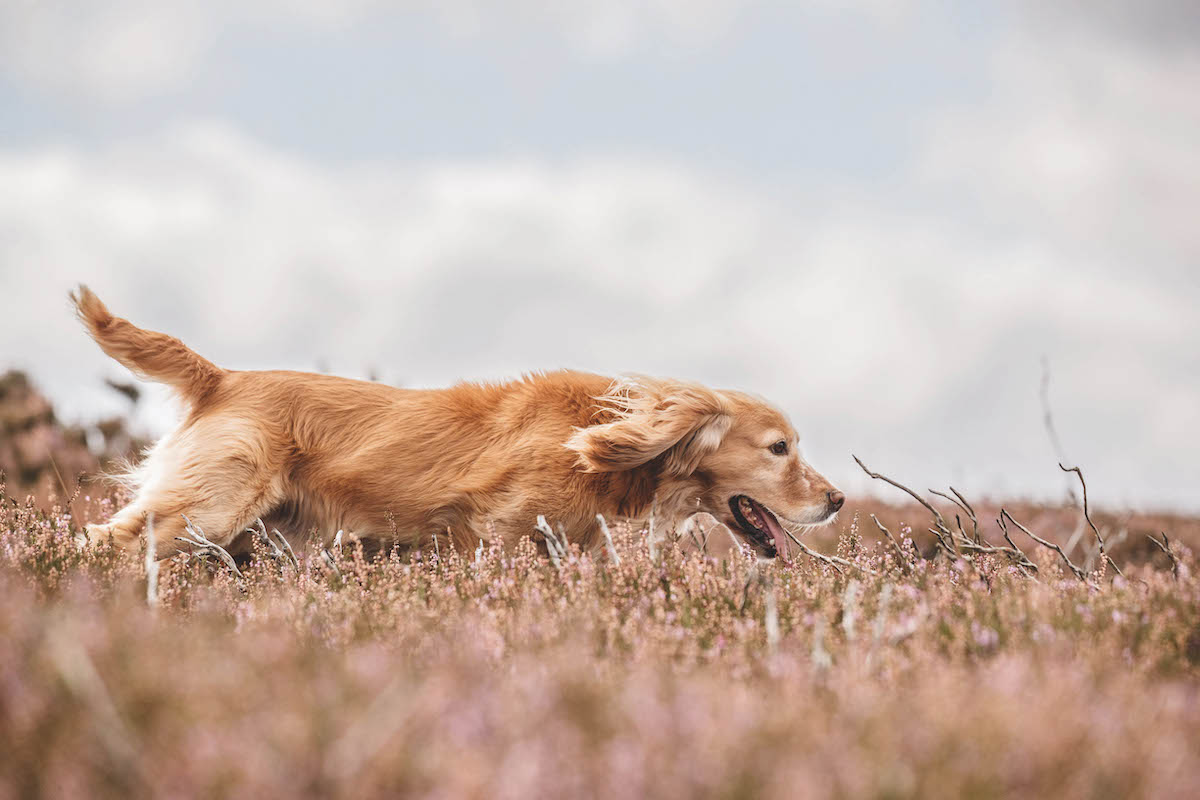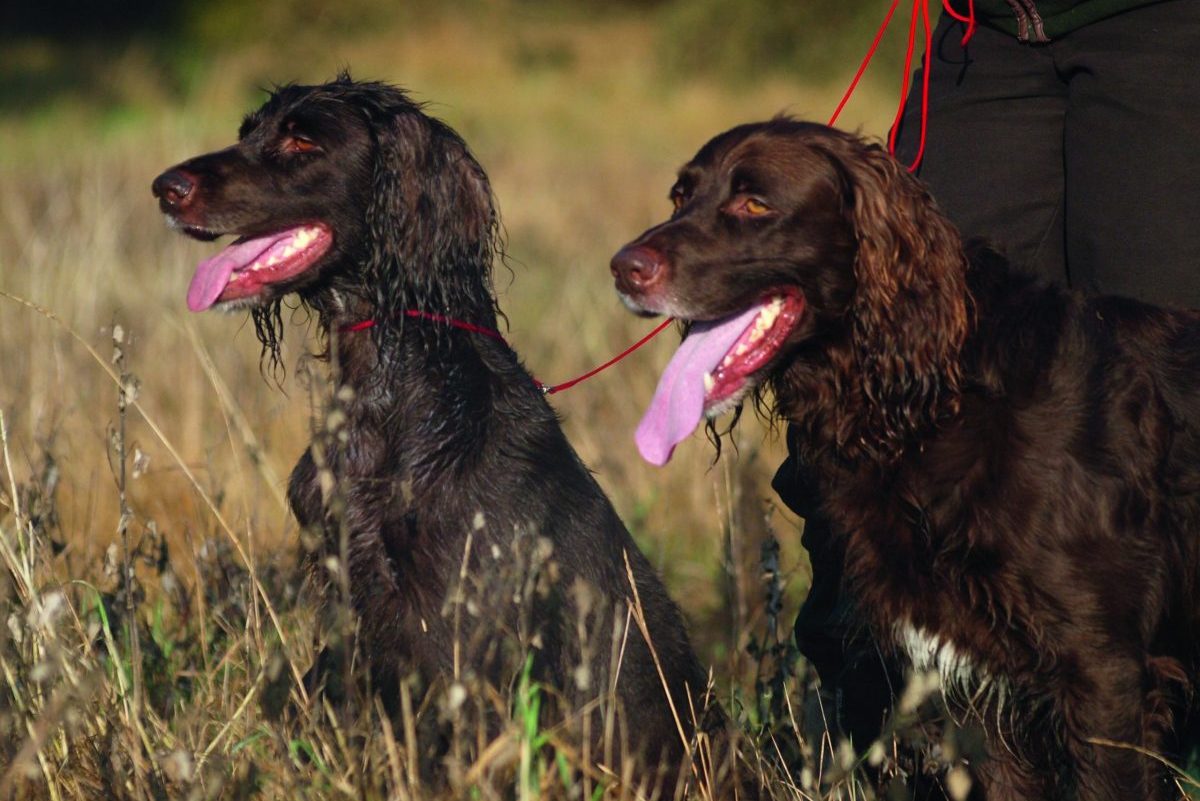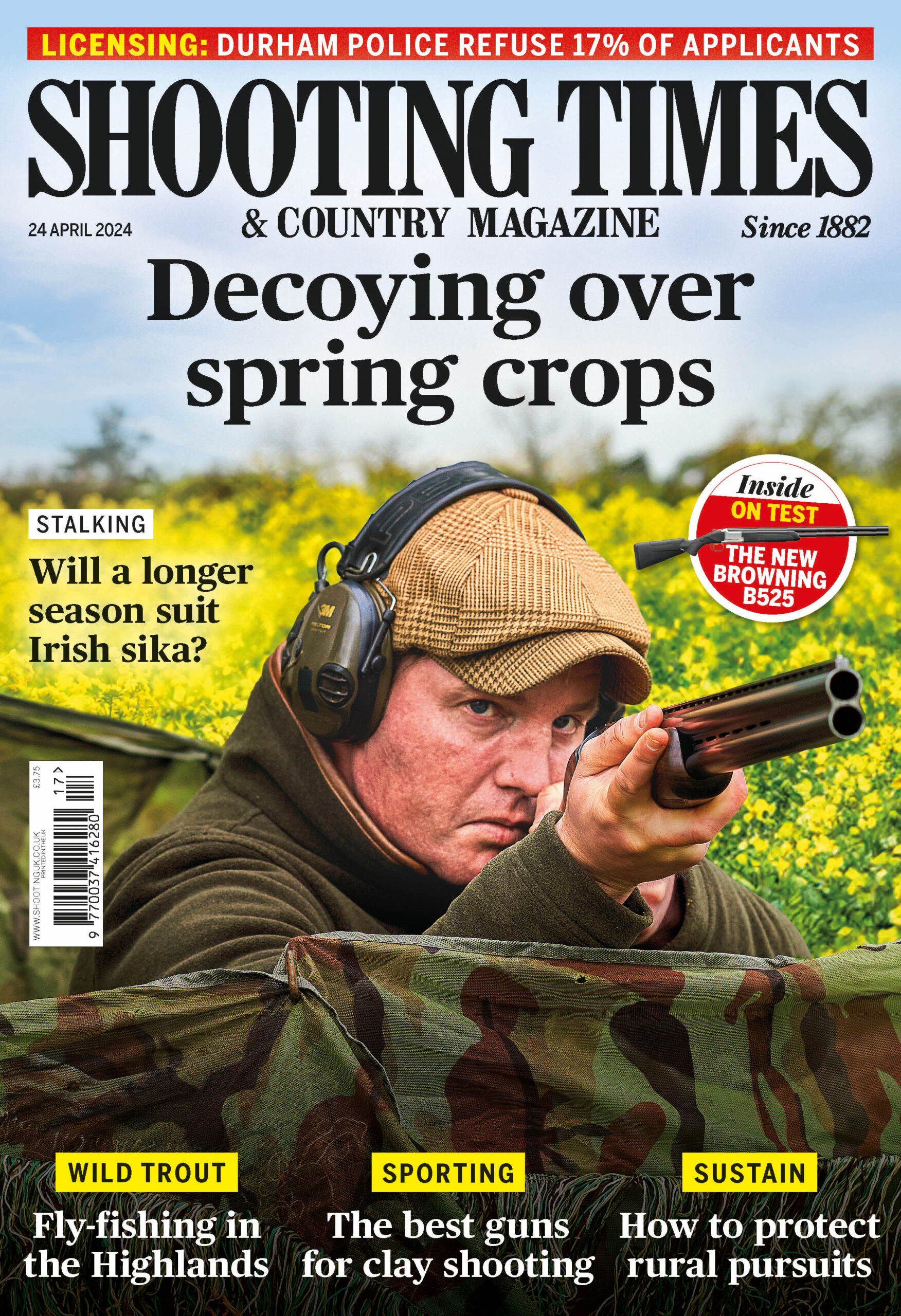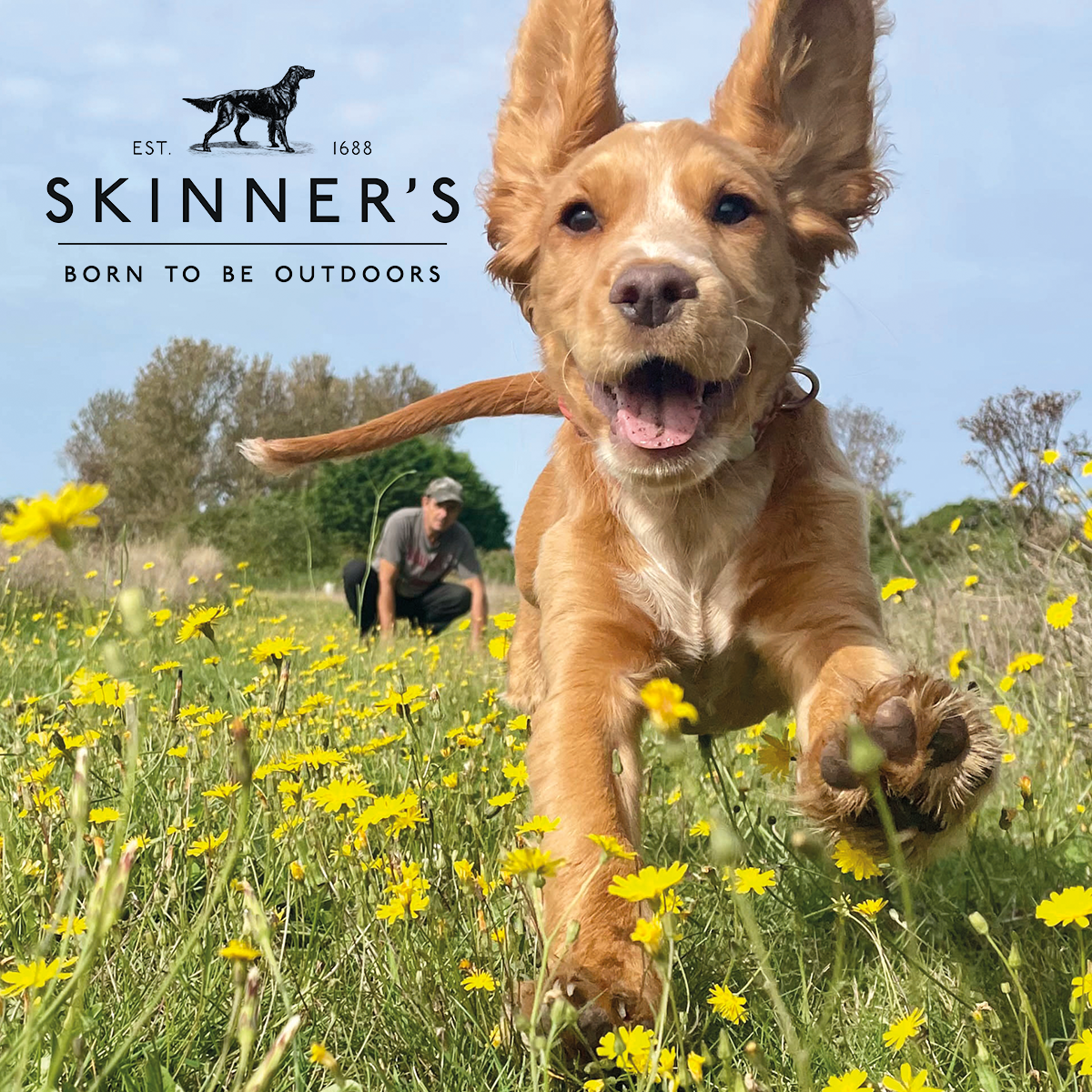Wilson Young Kennel Club Field Trial Sub Committee Q&A
Wilson Young, chairman of the Kennel Club Field Trial Sub Committee, on making field trials as fair and popular as possible.
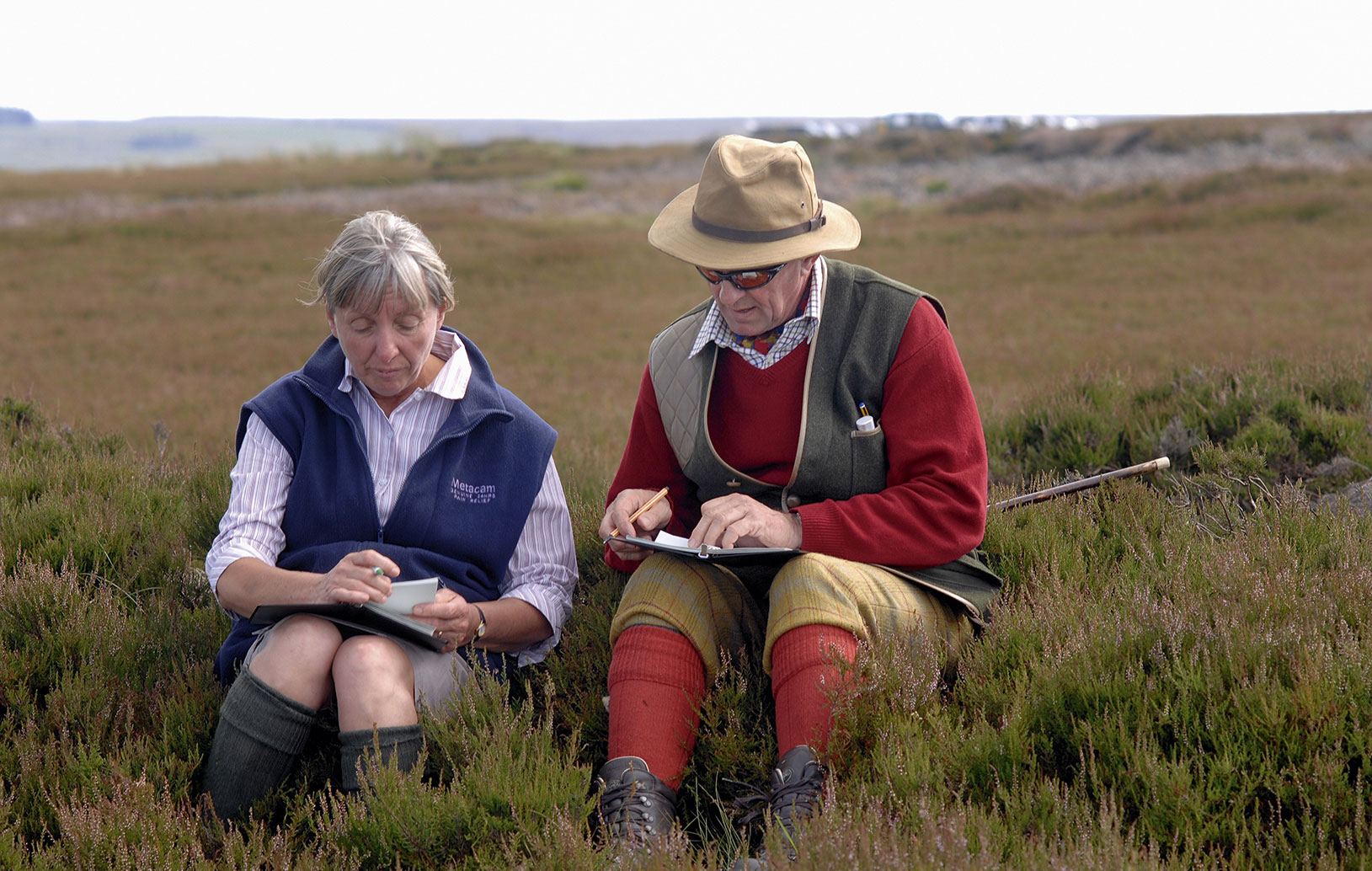
Wilson Young was interviewed in the June 2016 issue of Shooting Gazette
Amy Bates: Tell us about your picking-up?
Wilson Young: “We shoot six days a week and on occasions we can have five groups on the same day, so I’m out every day hosting a party and normally have a couple of labs with me. I have a long shooting season, five months, but I do enjoy it. I place the guns and watch what is happening and control the drive and pick-up throughout the day. There are very few dogs I don’t like but if you are going to have a retriever for a picking-up dog then you can’t do better than a labrador.”
Amy Bates: What are your thoughts about trialling?
Wilson Young: “I think trialling is flourishing. I’ve been watching trials for 40 years and I don’t think the standard has ever been as high as it is now. I consider the retriever championship and unquestionably, and I mean unquestionably, it is the world championship. I shoot every year in America and I shoot quail, woodcock and rough grouse. I’ve shot three or four different types of quail and I’ve seen their shooting dogs.
“I have a client who has become a very good friend and he has a lady who is a professional dog trainer and dog handler on his property in Montana. I’ve gone along and watched her train and watched her dogs and they are very good – but not to the standard of the best of ours. That’s why everyone wants to compete against the UK teams. Their cockers are used very extensively for picking-up bobwhite quail in South Carolina and Georgia. They are small dogs for small game. But I haven’t seen anything out there that would make me think that it’s time Ian Openshaw or David Lisett should pick up some tips.”
Amy Bates: Do you think in a retriever trial that a dog should have a heelwork certificate as well as a drive and water certificate?
Wilson Young: “What you are trying to say is that you can have a dog made up to FTCh that has only ever run in two driven stakes and it’s won both of them and it’s never really been tested walking to heel. The bottom line is that you can’t legislate for every extreme situation that might crop up. The J regs were revised and rewritten a few years ago when Alan Rountree was chairman of the Field Trial Sub Committee and involved in that process were Alan, John Halstead and Graham Cox. We are proud of the fact they are shorter than they were before we started. I’m not saying heel work is an extreme, what I am saying is that you can’t write regulations to cover every single thing. I’m happy to bow to the knowledge of these hugely experienced people. They will have considered all these possibilities and the fact they have signed off what we’ve got is good enough for me.”

Wilson Young in action at a pointer & setter trial.
Wilson Young on changes to judging…
Amy Bates: What about the disparities in judging?
Wilson Young: “You’ve got to have confidence. To go on to the panel, the ‘A’ panel, there is a process. At every meeting of the Field Trial Sub Committee, I can assure you that people are scrutinised carefully, and again we’ve changed the process in some ways to make it better and fairer. If you get through that process and you are on the ‘A’ panel then I think people can have confidence.
“The judges are scrutinised by their peers and if somebody makes a bad job of judging a trial there is no compulsion for that society ever to ask them to judge again. So if someone makes a bad job of it and people are aware of it then it’s up to the societies and clubs not to invite them to judge again. I know some field trial secretaries don’t know a lot about trialling and some judging appointments are being made with the best of intentions, but the field trial secretaries should not be making judging decisions on their own. Having been on quite a few committees and chaired a few clubs, in a situation where the field trial secretaries have problems they should consult their committee.”
Amy Bates: Do you think ‘A’ panel judges should be reviewed?
Wilson Young: “People don’t realise that panel judges are reviewed every November in the sense that they have to be reconfirmed. If people think they get onto the ‘A’ panel and they are there for life, that’s not really so. They are only there until the next November. Most people judging are keen competitors and I like them to be keen competitors. We can get into a situation where a lot of judging appointments are being handled by people no longer running dogs and I realise there have been difficulties, but there is a limit to how much we can ask people to do. We license 750 odd trials a year and that’s a tremendous burden.
“If we have a situation like we had with complaints about the retriever draws in Scotland we took a measure. It is a possibility that the Kennel Club could do all the draws and the overwhelming majority of people in the sport think it would be a good idea. I’m not saying there is anything corrupt or irregular about the draws, but if the Kennel Club did them everyone would know that it is absolutely down the middle. Or it might be that we should talk about testing the judges; nothing is impossible. If we think there is a measure that will improve the sport, enhance enjoyment and emphasise integrity then we’ll look at it.”
Amy Bates: Is the £35 process of objecting a bit heavy-handed? Wouldn’t it be better to have a steward’s enquiry on the day of the trial first?
Wilson Young: “First of all, if someone puts £35 down then the objection will be heard at the Kennel Club. If we think it is a legitimate complaint it will come to the FT Sub Committee. Usually what would happen is that we would ask three people to sit out so that if we decide one way or another and there is an appeal, we have three people who haven’t been involved. Now if we think there is reasonable grounds for a complaint, irrespective of the decision that is reached, you would probably get your £35 back, that’s the first thing, although the £35 is not the issue. I was the chairman of the Kennel Club disciplinary committee and we live in a very litigious society and before you do anything you have to be 100 per cent certain of your ground. I chaired an appeal tribunal to do with heelwork to music and the lesson there was you have to be very careful indeed that you have got everything in place. Innuendo is no good, hearsay is no good; you have got to have witnesses who will stand up to examination.”
Amy Bates: The point of witnesses is very important?
Wilson Young: “First of all you need someone who is actually prepared to put in a report. People come to me and say: ‘What is the Kennel Club going to do about this or that, I was at a trial and this or that happened?’ I say: ‘Well as soon as I have seen your report…’ and they say: ‘Oh I haven’t made a report…’
“Well we are not a detective agency, we are reactive, we can only react when people come along and make a formal complaint. And then the complaint has got to be backed up. You’ve got to have someone credible, they’ve got to stand up to robust interrogation.”
Amy Bates: What about when people say they aren’t going to run under a particular judge?
Wilson Young: “Well that is unfortunate and it would sadden me. I don’t know to what extent that is happening in the retriever trials, when you have a situation where you have 160 or 170 entries for a 24 dog stake. I have only ever judged with one judge who I thought to be a crook. It was a very difficult situation and we ended up with no awards because he was determined that one individual was not going to win the trial and we ended up with no awards, and in my opinion we unquestionably should have had. If it had been dishonest in the other sense and he tried to get someone to win the trial, I would not have signed the game certificate. But because there was a negative, if you like, result there wasn’t anything to be signed.
“As far as pointers and setters are concerned, there are some judges I would rather go under than others but that is probably because I know they like my kind of dog. I am a highly competitive individual. I’ve been involved in competition all my life. I’ve played rugby and athletics at the top level, and I’ve coached track at Olympic level. I’m very single-minded, I’m not there to make up the numbers – I’m trying to win. But I’m trying to do it and keep a sense of sportsmanship and at the end of the day I look at my dog positively; I leave others to pick holes in it.
“Integrity is the single most important factor when it comes to judging. If an honest idiot is judging you, you’ve got a chance. If you are being judged by a crooked genius you’ve got no chance whatsoever. No one goes on the ‘A’ or ‘B’ panel if his or her integrity is in doubt. If there is anything in the judge’s report which suggests that the person was guilty of being biased for or against, we look into it very carefully.”

Wilson Young picks-up throughout the season on his shoot near Lauder in the Scottish borders.
Wilson Young on social media and new beginnings…
Amy Bates: In your official capacity with the Kennel Club, how much store do you put in social media?
Wilson Young: “I have never seen social media – ever. I don’t look at it and have no intention of getting involved in it because it’s a medium where people can be totally irresponsible. I get people phoning me saying have you seen this or that on Facebook? I don’t think it is helpful. We are happy to listen to anybody who has a sensible contribution to make. We’ve had rule changes in pointers and setters for example, which came about because one individual has written to the FT Sub Committee and said it would be much better for this or that to happen, and we discussed it and it was a good idea and we incorporated it into the regulations.
“But how can you make sense out of Facebook? The Field Trials Newsletter is a useful way of firing a low shot over people’s bows without getting too heavy-handed about it. If something is creeping into the sport that shouldn’t be then we can ask the relevant people to write a short paper on what needs to be addressed or interpreted. It is a way of getting things out there.”
Amy Bates: Tell us about the new ground in Northumberland for the Kennel Club?
Wilson Young: “The whole area is an SSSI so we have to have a management plan with Natural England before we can push the button and we are negotiating at the moment. The Kennel Club will be managing the estate in-house and trials for all breeds can be held there and I will be the person overseeing it. Our vision is that this will be a centre of excellence for dog training. If you ask someone new to pointers and setters what is the most difficult obstacle, they will tell you it’s getting access to ground. You can go up the garden with a tennis ball with a retriever but with a pointer or a setter you’ve got to be on to game, you’ve got to get the dog pointing.
“At Emblehope we will have 7,500 acres, which is ideal. To run a walked-up day on a rough shoot you need 250 acres so we will be able to run 30 consecutive days without going on the same ground twice. If you are a FT secretary and you need a venue you will be able to ring up and book ground for trials and training days. Our target date for getting started is September 2017.”


